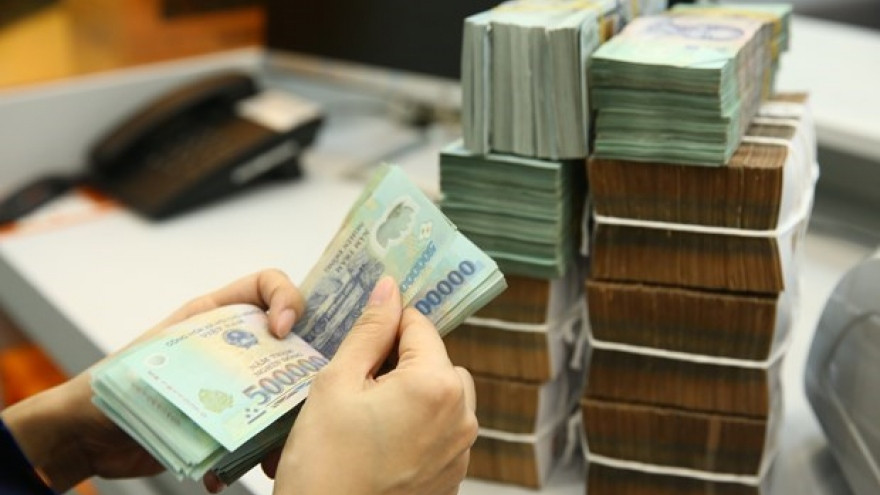Bad debt surges sharply

According to the State Audit, in 2023, the State Bank of Vietnam (SBV) adopted proactive and flexible monetary policies that helped maintain inflation at 3.25%, stabilized exchange rates, ensured liquidity in the banking system, and supported economic growth.
While financial institutions, banks, and insurance firms generally met safety indicators and remained profitable, with on-balance-sheet bad debt ratios under 3%, the audit uncovered several worrying issues.
Credit structure remained misaligned with priority sectors. As of the end of 2023, real estate credit debt had increased by 11.8% compared to the end of 2022. Notably, real estate investment loans jumped by 35.4% - 2.5 times the sector's average growth rate - highlighting deteriorating credit quality and growing risks.
The audit also revealed a sharp rise in bad debts among customers with outstanding loans over VND 500 billion (approx. USD 19.6 million), particularly at Saigon Commercial Bank (SCB). For example, at Saigon Thuong Tin Commercial Joint Stock Bank (Sacombank), bad debts in this group surged by 536.2%, while Vietcombank saw a 110.8% increase.
Despite four rounds of interest rate cuts by the SBV in 2023 - ranging from 0.5 to 2 percentage points - the average lending rate still exceeded the average deposit rate by over 4%.
The interest rate subsidy program under Decree 31/2022/NĐ-CP ended with only VND 1.216 trillion (USD 48.4 million) disbursed, equaling just 3.04% of the plan. Some commercial banks also misapplied subsidies totaling VND 1.75 billion (USD 69,700).
The SBV has yet to formulate or submit a national strategy or plan for developing the gold market and has failed to intervene in a timely manner to stabilize it as required. Moreover, coordination between ministries and agencies in sharing data for balance of payments forecasting has remained inadequate for years.
Ineffective financial investments
The State Audit also highlighted several institutions with low or ineffective financial investments.
Vietnam Cooperative Bank (Co-opBank) has yet to recover a deposit of VND 330 billion (USD 13.1 million) at Handico Finance JSC.
At the Vietnam Bank for Agriculture and Rural Development (Agribank), Leasing Company I (ALCI) reported accumulated losses of VND 783.1 billion (USD 31.2 million) as of December 31, 2023. Agribank had already provisioned 100% of its VND 172.08 billion (USD 6.8 million) financial investment in ALCI.
Leasing Company II (ALCII) has been declared bankrupt and ceased operations. Agribank had also fully provisioned over VND 294.4 billion (USD 11.7 million) for its investment in ALCII.
Agribank's VND 10 billion (USD 398,000) investment in Vinaconex Transport JSC also proved ineffective, as the company has been inactive since 2015 and the investment was fully provisioned.
Audits at certain banks uncovered incorrect debt classification. Co-opBank had to adjust debt balances downward in group 1 by VND 15.4 billion, group 3 by VND 90 million, and group 4 by VND 180 million, while increasing group 2 by VND 13.41 billion and group 5 by VND 2.26 billion.
At Vietcombank, group 1 debt decreased by VND 24.06 billion, group 2 by VND 138.38 billion, and group 4 by VND 57.15 billion. However, group 3 rose by VND 84.51 billion and group 5 by VND 135.08 billion.
Banks were also found to have made procedural errors in loan disbursement, including superficial credit appraisals, failure to periodically revalue collateral, lack of disbursement documents, or inadequate supervision of loan usage.
At the Vietnam Bank for Social Policies, loans intended for job creation were sometimes issued to ineligible recipients or exceeded limits. Interest subsidies were occasionally misapplied, and some branches recorded overdue and deferred debts higher than the system average.
Tam An